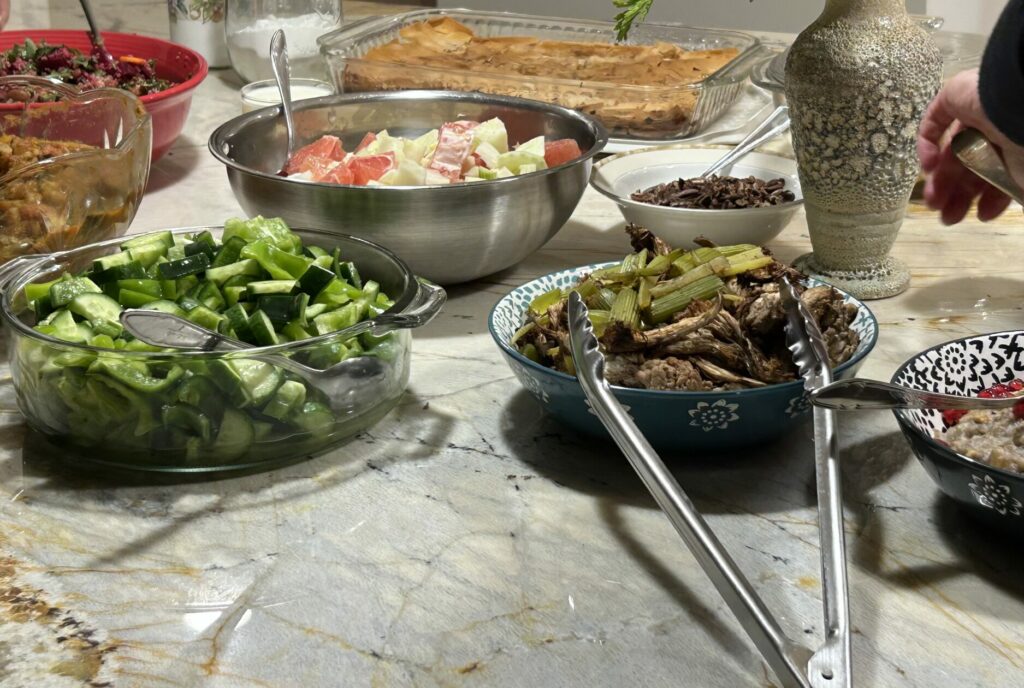As we age, sometimes things just aren’t as sharp as they used to be. That cracking sound? It might be your knees when you bend down.
And our memory…sometimes it feels as rusty as an old nail in the garage.
How many of us have gotten up to go to the kitchen, only to then enter into a heated discussion with ourselves asking why we got up in the first place? That’s a humorous – and very typical experience. But less humorous is missing important appointments or special occasions like birthdays!
While memory lapses are more common among senior citizens, they can happen at any age. However, they feel more upsetting as we age because of the looming fear it might be a sign of dementia or loss of other cognitive abilities.
Many people often consider memory loss a normal phenomenon that accompanies aging, but this isn’t biologically true. If you’re facing significant memory loss, it could be caused by more serious neurological factors. At 25 it’s easy – and probably not harmful – to just pass it off. But later in life, it’s always a better idea to check in with a health professional just to make sure. Your private duty caregiver is best suited to diagnose the illness and create an effective treatment plan accordingly.
If you are experiencing fleeting memory loss issues with age, we have some good news. These occur due to expected shifts in the functioning of our brain matter. These shifts can slow down our cognitive abilities in our older years and interfere with memory recall. But much like physical exercise to keep the body functioning well, we can also “exercise” our brains!
Here are some tried and tested tips on preventing memory loss:
Never Stop Stimulating Your Brain
Scientific research has proven that people who keep studying and gaining more knowledge activate brain processes that keep their minds active and stimulate communication between memory cells. No, you don’t have to go back to school, but by expressing natural curiosity in new subjects, and diving deeper into it is both fun, and mentally beneficial. Always loved history? Immerse yourself in documentaries or reading up on the history of the Roman Empire and become a mini-expert on the subject. Always wanted to learn Spanish? Now seems like a good time. Think of all those dramatic tele-novellas you can enjoy now! All of these activities work similarly to preserve brain connections and keep your mind fit.
30-Minute Walks Each Day
You don’t have to turn into Arnold Schwarzenegger to get the benefit of exercise. You also don’t need to be in tip-top shape. Did you know that walking just 30 minutes a day is one of the best things you can do for your mind and body. Physical exercise is highly evidenced to offer memory preservation. It can also help you fight against several other factors that worsen your cognitive abilities, including;
- Diabetes
- Stroke
- High blood pressure
- Obesity
Recent studies have also suggested that physical activity can trigger the production of the BDNF protein, which promotes nerve cell production. This will give your memory the perfect boost to function at its best. So, you should make sure your home care assistance provider sets aside time for a daily walk.
Try to Exercise All Your Senses
The more sensory stimulation you get, the better your cognitive functioning will be, which directly relates to improved memory. When you use all of your senses, your brain becomes increasingly involved in retaining that incident in your memory. Brain imaging has shown us that paying attention to the smells and sights of a certain moment will help you remember that moment itself. So, be sure to challenge all of your senses and exercise them regularly. Pay attention to the sounds and smells around you and truly feel every passing moment. So take that cooking class you’ve always had your eye on. Or an art class.
Switch to some version of the “Mediterranean Diet”
We’ve all heard the phrase ‘you are what you eat.’ That applies here too!
The Mediterranean diet is based on the traditional foods that people used to eat in countries like Italy and Greece back in 1960. Researchers noted that these people were exceptionally healthy compared to Americans and had a low risk of many lifestyle diseases. The better your diet, the healthier your brain will be. Several studies have shown how Mediterranean diets can offer exceptional benefits to the brain structure of older adults. By requesting your care management personnel to incorporate more fruits, veggies, and fish into your daily meals, you will start to notice a clear improvement in your memory skills.
Keep Moving
A study conducted by the Center for Brain Health in Dallas showed that seniors who engage in various physical activities throughout the day have better brain functioning. When you keep moving and stay physically busy, it helps increase the blood flow to your brain. Not only will your memory improve, but you will also notice enhanced mental health within the first few weeks.
So, instead of spending your free time sitting by the TV or playing board games, try to walk around the garden or cook up something delicious in the kitchen. As long as you stay on your feet, your memory will continue to outshine!
Spaced Repetition
We all remember having to recite our mathematical tables in school ad nauseaum. It wasn’t just to punish us. Making an effort to actively recall information, especially at times when we don’t necessarily need the information is a great way to “exercise” the brain. From the birthdays of your loved ones to personal information and appointment dates, you will be able to recall them all through spaced repetition.
Write down the most important pieces of information you want – and might need – to be able to recall easily. These might include:
- Birthdays of loved ones
- The names of our loved ones and every one of the children, grandchildren, nieces and nephews
- Your medication list
- Any pre-existing health conditions (if you ever find yourself in a medical emergency it would be helpful to tell a medical professional if there is anything they need to know)
- Telephone numbers (remember having to memorize those?)
- Your social security number
Make a game of it. Quiz yourself periodically and write down your scores. Keep a journal. This will help you to gauge the “health” of your memory. If you see in your journal that you are slowly getting less and less right, that’s a signal to seek medical advice.
There’s a reason we can all remember things from our childhood like the batting order of our favorite baseball team when we were 10, or every word to every one of our favorite songs from the hit parade when we were 16. Because we thought about it all the time. We talked about it, repeated it, and read about it. It created grooves in our memory like the grooves in an album.
Use repetition in spaced-out intervals though, instead of cramming it in as you did during finals weeks. Repeat the information to your caregiver every two hours for it to be the most effective.
In Conclusion
All of these tips are designed to prevent memory loss in seniors. You should request your private duty caregiver to incorporate them into your schedule and practice them regularly. Moreover, having frequent health check-ups will also help you determine any underlying illnesses that could be messing with your memory skills. Medical conditions often reduce cognitive functioning, but the damage can easily be undone through treatment.
Consequently, older adults’ caregivers should ensure that they get tested for thyroid disease, diabetes, deficiencies, and depression at least once a year. It will allow you to catch any health conditions in their early stages to minimize the effect they could have on your memory.



